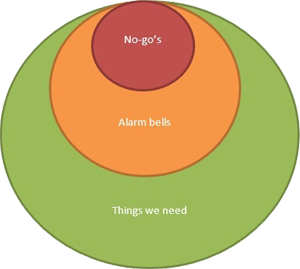Partners and Parents

Information for Partners and Parents of Sex and Porn Addicts
Information for partners of those experiencing sex and porn addiction and compulsive behaviours including Partner Information Session.

Understand the immediate impact on yourself

You may feel out of control and pushed to the limits of your patience and tolerance or just immobilised no knowing what to do. You are likely to feel isolated at times as this subject is difficult to discuss with anyone you don’t trust highly, If we ask partners who have gone through this experience what helped them cope with this period in their relationship they say that acknowledging and accepting the reactions they had as normal helps a lot and talking to a trained counsellor helps to manage this phase.
As a partner you deserve help and support through the trauma of discovery in just the same way as your addict partner needs treatment to stop. This enables you to regain some level of control over the flood of emotions and questions and start to put in place things to look after your own physical and mental health.
Know how you are likely to react and how to look after yourself.

Be there for your partner but....
- what has previously happened, for example, is this disclosure/discovery part of a pattern or is it the first or,
- the strength of the bond between you and your parrtner if your affection and connection with one another are strong and meaningful so thats there is more to gain in rebuilding than in separating,
- whether you have children, their ages etc and how they might be affected.
Know what your partner will be doing during therapy.
Partner Information Sessions
These are offered to all partners of my ongoing clients and are best done nearer to the start of sessions, say between session 2 and 4. In this sessions I can:
- address your many questions such as 'why did this happen?' and 'what does the future hold' or 'can my partner stop for good and be trusted again?'.
- talk through the treatment plan and discuss with you what to expect in terms of changes in your partner
- discuss your well-being and provide signposting to resources and counselling by specialists if you feel you could benefit
- most importantly, reassure you through explaining the research and theories behind sex addiction, that the behaviours are most certainly not because of you or the relationship and are straightforward to stop and banish for good

Don’t suffer alone – get your own professional support.
Initially for a couple, both partners should receive therapy before considering couple counselling. Partners with addictive behaviours should see a specialist in sex and porn addiction. This is also helpful for their partners so a counsellor at least experienced in couple therapy can be very helpful however all sex addiction specialist are trained to help partners. This will help you to manage the impact of the revelations and shock and any self-blame you might be experiencing.
Avoid the common pitfalls.
- Don’t blame yourself. This is not of your making and not your fault. The chances are that the behaviours are linked to something that pre-dates your relationship.
- Hard though it may be try not to judge your partner too harshly. It is a common trap to think someone with sex addictions or compulsions is weird, sick or a pervert or meant to hurt you. All addictions are coping mechanisms for underlying issues and this is just your partner’s way of coping with something that has happened to them or is still affecting them. Having an addiction does not make someone inherently bad or flawed – it usually means they are struggling to cope with a psychological reaction to something and will not even be aware of the connection. They may think of themself as unwell or defective in some way and have been masking this as they find it difficult to talk about intimate things.
- Don’t feel that you have to take the role of detective and police officer. After discovery, the vast majority of sex addicts are at their most motivated to end what they have been doing. Trying to unearth every single detail and controlling every aspect of your partner’s life will have a negative effect on your health and psychological well-being especially if they are in denial and not ready for changing their ways.
- Don’t feel that you need to over-compensate in some way such as having more sex with your partner or making personal changes to your appearance or behaviours. The changes at this stage need to come from your addict partner who will need to take responsibility for attaining full recovery.
- Don’t feel that you are responsible for curing or controlling your partner. You may feel as though you should be doing these things but they are only likely to sap your physical and mental energy and leave you exhausted. By all accounts, have conversations with your partner if there are long periods of unaccounted time or unexplained expenditures - in fact, regular pre-arranged discussions very so often help promote openness and accountability.
What next?
Don’t be afraid to call me, Steve, on 07711 887391 or send an enquiry to have a free consultation on options open to you. Esteem Therapy Yorkshire also provides an online web chat option if you dont feel ready to talk yet.
FAQs for Partners of Sex and Porn Compulsives
Nothing. This is not your fault. You did not cause this. All the research and literature about sex and porn addiction refers to the behaviours as ways of coping with something from the past such as a trauma or present-day work stress. Sometimes the causes relate to low confidence or emotional inhibition. In almost all cases the behaviours, or others like them, were present in your partner before you met and are a product of growing up or personality.
Yes. Trust can be earned to some extent by recovering addicts’ positive behaviours and as they demonstrate a real evidence base of behaving responsibly (accounting for time, location, keeping screen-time to essential use only etc). However, trust mostly comes from feeling confident to take progressively growing risks with a betraying partner based on evidence of responsible behaviour. This is true of all relationships, as they all carry risk, but will take longer where deception and betrayal have occured. Your recovering partner can only nurture the conditions for trust which is for you to extend when you feel confident. In other words, trust is your gift to give and therefore your choice and only you can decide. Your own level of risk-taking, secureness and self-confidence will also dictate how much trust you are willing to extend.
